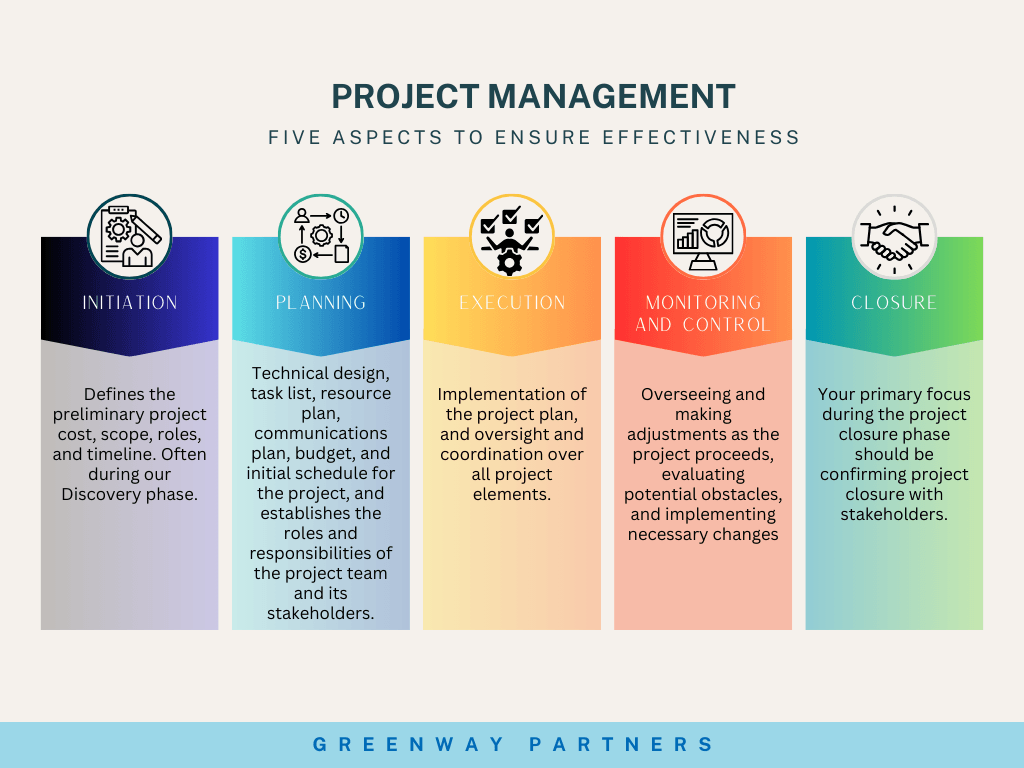Project Management:
Guiding Projects to Successful Outcomes
Greenway ensures successful project outcomes by structuring our project management services with these tried-and-true PM phases: initiation, planning, execution, monitoring, and controlling.

Initiation
During the Discovery phase of a project, the project is fully defined into a roadmap that is the strategy of project development. This roadmap includes all project management requirements including: stakeholders ( and their roles and responsibilities), timelines, budgets, decision making thresholds and process steps for every phase of the project.
Planning
During the detailed planning phase, the project manager creates a comprehensive plan encompassing execution, monitoring, and control, beginning with setting specific and achievable goals, ensuring clarity and alignment with project objectives. The plan includes milestones, deliverables, task breakdown, timeline, communication strategies, risk mitigation, and contingencies, often employing agile project management methodologies to efficiently allocate resources, meet client needs, maintain flexibility, and enhance software development project management effectiveness.
Execution
Following the planning phase, the execution phase begins, marking the commencement of actual project implementation, where project managers organize workflows, delegate tasks to team members, and maintain ongoing communication with stakeholders and teams to ensure progress alignment.
Monitoring and Control
Stage four of project management, typically concurrent with stage three, focuses on monitoring project progress and resolving issues as they arise, with the project manager and team conducting periodic reviews and updates to the plan to address changes in scope or resource availability. Additionally, it involves tracking progress against the plan, making necessary adjustments such as revising timelines for unexpected delays, and monitoring key performance indicators or critical success factors to ensure the project remains on track in terms of schedule, budget, and task completion.
Closure
The final phase of the project management lifecycle involves handing over deliverables to the client for approval. Following closure, the project manager conducts a final review documenting lessons learned and relevant data, while stakeholders discuss failures and successes, enhancing organizational performance and productivity.
Greenway has acted as project managers on numerous projects over the years. The following are examples of many of the most recent completed projects:
- Black Bear & Coyote Exhibit at the Sequoia Park Zoo
- Sequoia Park Zoo Redwood Skywalk
- Sequoia Park Updates
- Hoopa Shopping Center
- Gene Lucas Community Center
- Humboldt Senior Resource Center –
Adult Day Center and PACE Clinic - McKinleyville Fire Department
- Arcata Fire Department
- Proposition 39: Modernizing Local Schools with Energy Efficiency
- Lack’s Creek Trail Network
- Elk River Estuary: Future-Proofing Our Coastal Wetlands
